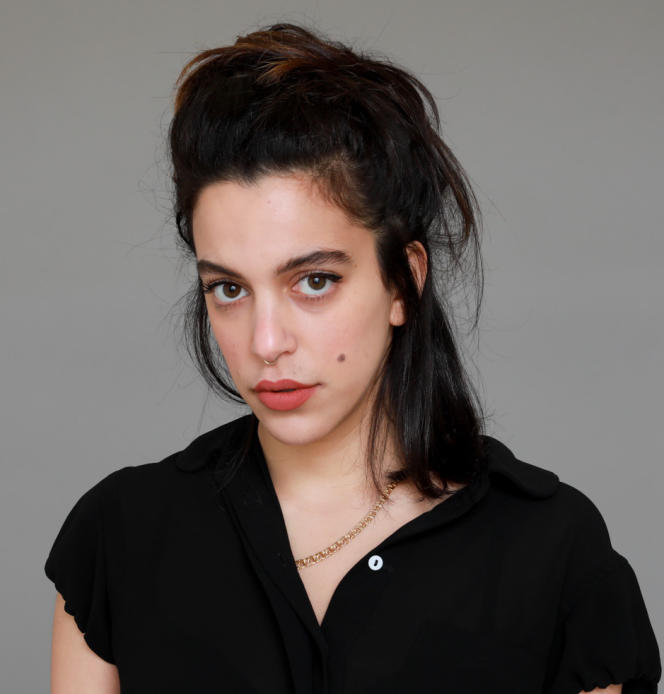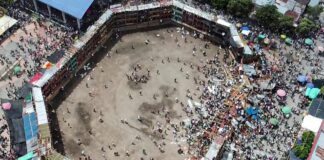We discovered Hadas Ben Aroya in France in 2018, with the release of his graduation film, People That Are Not Me. this film. A pop melancholy, an intimate and disaffected gesture at the same time. This lively thirty-year-old became ipso facto the standard-bearer of a generation in search of identity. Confirmation today with his second feature film, All Eyes Off Me, which outdoes everything.
Nudity places the viewer in front of a conflict. On the one hand, the shamelessness of nudity, the embarrassment or shame associated with it. On the other hand, its place in the arts, as an aesthetic object. It is this conflict that interests me. I like the idea that the viewer can move from their positions while watching the film. Otherwise, it does not interest me as a spectator. Nudity creates embarrassment at first, but the length of the shots and scenes of nudity will somehow force him to enter it, to see something else. There is a requirement of authenticity which is very important to me. In language, for example, but also in the representation of bodies. I show the bodies as they are, in their imperfection as in their beauty. Above all, I am not trying to magnify them.
The heroine of my first film knew what she wanted, but didn’t act on it to get it. The heroine of this one doesn’t even know what she wants or what she feels and talks and acts to find out. This is a little scary, because there is no longer a causal relationship between thought, actions, and their consequences. The characters in this film are totally unreadable. In this sense, the film is more radical and more abstract, but at the same time it could not be more concrete, because the staging deprives the viewer of the keys that would allow him to clearly understand the reasons of the characters.
I believe that there was a before and an after Oslo [the agreements signed in 1993 between Israelis and Palestinians with a view to resolving the conflict] in the country. What followed, and which hit my generation hard, was like an immense resignation. The simple injunction to have to think about our political situation has become a burden. The youth of my country, it seems to me, have become both indifferent to everything and for this very reason in a feeling of almost permanent violence.
It was so to speak not financed at the beginning, the Israel Film Fund joined us during the shooting. This is all so long. I wrote this film in Marseille, where I had taken refuge after a breakup. I wrote it fast and I needed to shoot it fast. Anyway, I don’t have the patience to wait for decisions to be made and funds to be released to shoot. I have learned, since my first film, to adapt my aesthetic to this lack of means. Indoor filming, the primacy of dialogues and intimate scenes in the bedroom.
Not at all. I believe this movement is natural. I belong to a generation which, during its studies, has seen too many political Israeli films and which no longer digests them. Left-wing protest against the state, even if justified by the actions of the regime, had become a mantra of our cinema, a facility, a cowardice I dare say. It was basically exactly what was expected of us. The political restrictions of which you speak, moreover, no longer exist today under the new government.
To some extent, yes. What this cinema rose up against at the time was really works that displayed the Zionist creed, it was a kind of master discourse with which it was very difficult to distance oneself because of the very particular to the country, the feeling of precariousness from which it was born and its fragility. You had to have courage to do it, but unfortunately this movement, apart from Uri Zohar who has retained real popularity, has fizzled and Uri Zohar has abused his freedom so much that he went crazy before converting to religion. I hope to have another future.


















